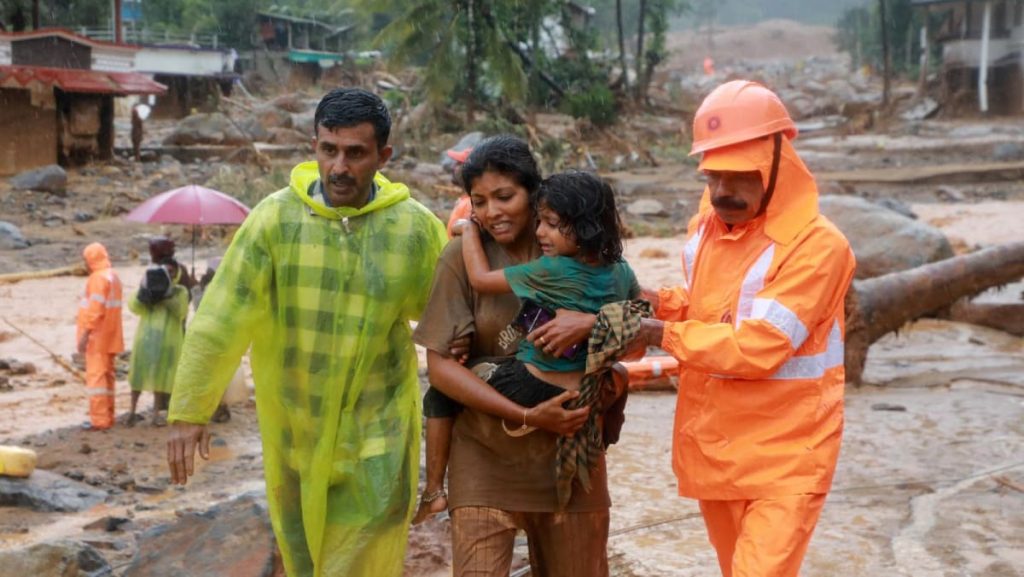Heavy rain triggered landslides in southern India’s Kerala, killing at least 93 people, mostly tea estate workers and their families who were caught in the tragedy while they were asleep. The Wayanad district of Kerala was particularly affected by the landslides, which occurred after midnight following torrential rainfall on Monday. Rescue efforts were underway, with images showing rescuers navigating through uprooted trees and flattened structures to reach those in need. One man was stuck in chest-high mud for hours before being reached by emergency workers.
Television coverage showed the extent of the damage, with boulders strewn across hillsides and muddy water rushing through the affected areas. A total of 100 families were reported to be stranded after the landslides, with nearly 350 families living in the region that was hit. Most of the affected areas were tea and cardamom estates, highlighting the impact on the local community and economy. State officials reported that 250 people had been rescued so far, but the risk of more landslides remained high due to the ongoing heavy rainfall.
The landslides in Kerala have raised concerns about the increasing vulnerability of communities in the face of unpredictable weather patterns and the impact of climate change. Southern India has been experiencing frequent periods of heavy rain, leading to flooding and landslides in various parts of the region. The tragedy in Kerala highlights the need for better infrastructure and disaster preparedness measures to mitigate the impact of natural disasters on vulnerable populations, especially those living in hilly or mountainous areas prone to landslides.
The devastating landslides have also underscored the importance of sustainable land use practices and conservation efforts to protect fragile ecosystems from soil erosion and other consequences of deforestation. The tea and cardamom estates in Kerala are an integral part of the region’s economy, but their expansion and development have come at a cost to the environment. Balancing economic growth with environmental preservation is crucial to ensuring the long-term sustainability of the region and the well-being of its inhabitants.
As rescue efforts continue in Kerala, the focus is on providing relief and support to the affected families, many of whom have lost their homes and livelihoods in the landslides. The tragic loss of life serves as a stark reminder of the urgent need for coordinated action at the local, national, and international levels to address the challenges posed by climate change and natural disasters. The people of Kerala are resilient, but they also need assistance and solidarity from the broader community to recover and rebuild in the aftermath of this disaster.
In the wake of the landslides in Kerala, there is a renewed sense of urgency to strengthen disaster risk reduction strategies and invest in sustainable development practices that prioritize the well-being of both people and the environment. The human toll of the landslides is a somber reminder of the interconnectedness of communities and the impact of environmental degradation on vulnerable populations. Moving forward, it is essential to learn from this tragedy and take concrete steps to build a more resilient and sustainable future for all.


